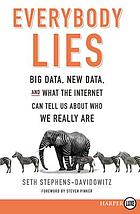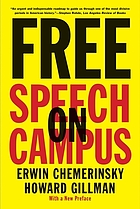"'Hardly a week goes by without another controversy over free speech on college campuses. On one side, there are increased demands to censor hateful, disrespectful, and bullying expression and to ensure an inclusive and nondiscriminatory learning environment. On the other side are traditional free speech advocates who charge that recent demands for censorship coddle students and threaten free inquiry... This book provides the background necessary to understanding the importance of free speech on campus and offers clear prescriptions for what colleges can and can't do when dealing with free speech controversies'--Book jacket."
"The twin crises of immigration and mass migration brought new urgency to the balance of power between progressive, humanitarian groups and their populist opponents. In the United States and many European countries, the outcome of this struggle is uncertain, with a high chance that the public will elect more politicians who support an agenda of nativism and privatization. The Antiegalitarian Mutation makes a forceful case that those seeking to limit citizenship and participation, political or otherwise, have co-opted democracy."
 Check It Out!
These are just a few of the many new books, movies, and games at your Langsdale Library. To see the complete listing of new materials check out our list right here! If you want to receive updates when new materials get listed each month, you can subscribe to the list through the RSS feed. |
A listing of things going on at the RLB Library and items of interest to the UB community
10/04/2017
New Print & Ebooks at Langsdale!
4/21/2016
Supreme Court Declines to Hear Google Books Case
Back in 2005, the Authors’ Guild sued Google over its Google Books project. The Authors’ Guild claimed that Google infringed on copyright by its wholescale scanning of complete books, done without the permission of authors or publishers. The lawsuit has taken many twists and turns over the past decade but, again and again, the courts found in favor of Google, declaring Google Books to be both a “fair use” of the texts in question, as well as a transformative use. Google’s book-scanning endeavor is seen as transformative because, for the first time ever, it allows for the full-text searching and text-mining of millions of works. Now that the Supreme Court has declined the Google Books case, Google Books fans can rest easy, knowing that the fate of this revolutionary project no longer stands at the mercy of a judge.
10/30/2015
Google Wins Again!
3/05/2015
Searching for the Truth
- Snopes investigates rumors like "Nabisco is producing Fried Chicken Oreos"(false, by the way)
- LazyTruth is an app you can use to debunk stories in chain emails
- FactCheck.org uncovers claims related to public policy and politics
- PolitiFact is an independent website that checks claims made by politicians using their "Truth-O-Meter" (and tracks President Obama's campaign promises using their "Obameter")
But when looking up information on a topic, or trying to learn more about an issue, most people turn to Google as the primary place to get information. Google ranks its search results using an algorithm that looks at metadata (including keywords), popularity, and, increasingly, personalized information gleaned from your search habits and history. How does Google know a website is popular? It looks to see how many other pages link to it, and counts each link as vote of recommendation for that website. The more times other websites link to a certain page, the more that website page will move to the top of your Google search results.
 |
| Photo Credit: Pixabay |
In order for Google to determine what is and isn't a fact, it has a vast Knowledge Vault that contains billions of pieces of information called triples, which it determines to be accurate information. If Google succeeds at being able to rank search results by accuracy (certainly, a useful service) this means we're relying on technology, a company, an algorithm to tell us what is true and false, taking away our ability to think critically about the information we find, and putting an awful lot of trust in Google. Who will fact-check Google?
12/02/2010
Google enters e-book market
11/18/2010
Going Farther with Google Maps

Some of the things you can do with Google Maps include:
- Get driving, walking, cycling, or public transit directions from one place to another. You can even choose between different recommended routes or click on "traffic" to see current travel conditions.
- Use "search nearby" to find businesses near an address. I use this when looking for food by cuisine (pizza, Chinese food, etc) or for businesses I need (Kinkos, Post Office, etc).
- Zoom to the street-level photograph of an address, to see what an unfamiliar place looks like from the ground.
- Search for user-submitted photos and videos near an address by clicking on the "more" button and selecting those options.
- Look up Wikipedia articles that relate to specific places the map using the "more" button.
- Search for a new home or apartment using the "real estate" option under the "more" button.
- Log in to create your own maps and share them with friends
- And a whole lot more!
5/17/2007
Google Universal Search Launched Today
Google To Add Embedded Videos to Default Search Results
We're here at Google's Searchology event in Mountain View. Google's Marissa Mayer has announced that the company is launching a new, integrated search experience Wednesday called Universal Search.
This means no more searching for videos, images or web results independently. Google will now combine search results for everything -- books, news, images and video -- onto default search result pages. Universal Search will re-draw Google's default search results pages as we know them, but the coolest development is that YouTube and Google Video players will now be embedded within search results.
Out of curiosity, I tried a search for "Bob Barker," the soon-to-be-retired game show host. In the old Google, if you wanted to find an image of Bob Barker you had to click on the Image link above the search box and then type his name; if you wanted video of Barker telling contestants to "Come on down," that was a new search.
In the new Google, you only have to search once and then you can pull up the type of results you want. You still get the default Web results, but you can click on one of the menu options in the upper left-hand corner for images, video, news, and even maps (where Bob Barker's production offices popped up). There is also a pull-down menu with other results options, including Google Scholar; that's where I found a 1996 article from The American Economic Review entitled, "The Price is Right, But are the Bids? An Investigation of Rational Decision Theory" (and Google Scholar tells me the full text is available at UB in Business Source Premier).
While the new Google Universal Search may take some getting used to, it should make searching a lot easier.
Do you like the new Google? Give it a try and let us know what you think.
More on Universal Search from Google Blog: http://googleblog.blogspot.com/2007/05/behind-scenes-with-universal-search.html
The Official Google Press Release: http://www.google.com/intl/en/press/pressrel/universalsearch_20070516.html

